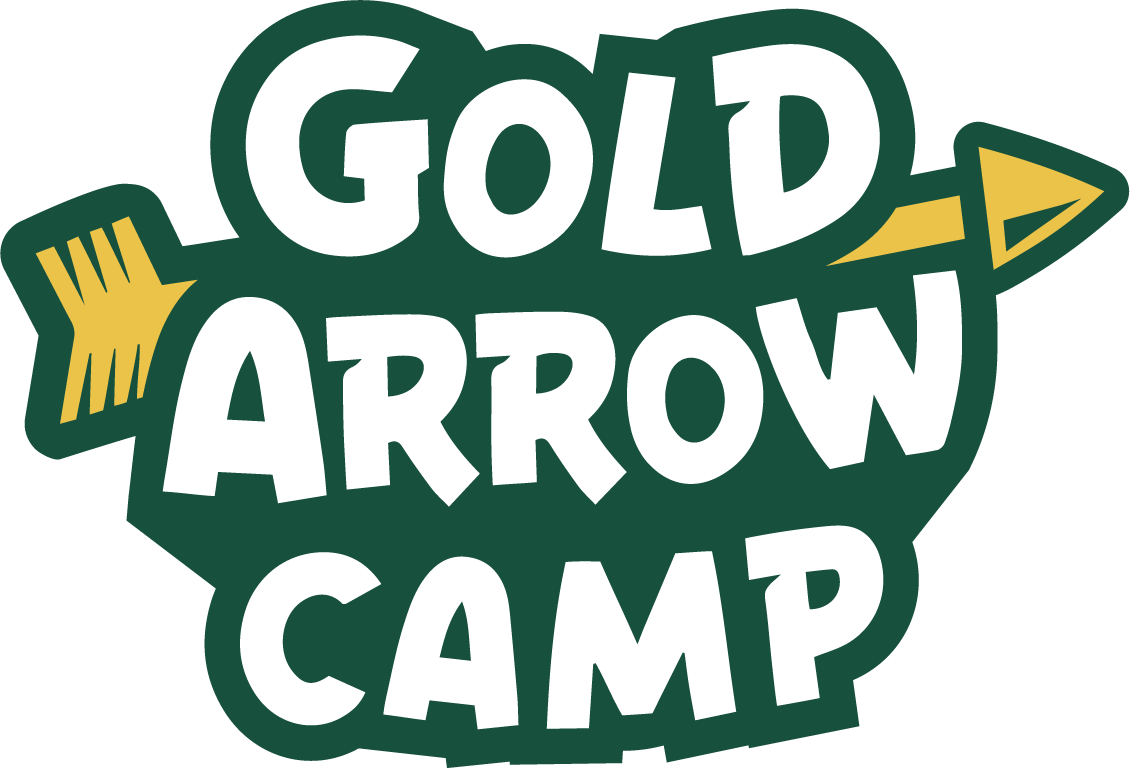Episode 102: Season Wrap-Up with Sunshine
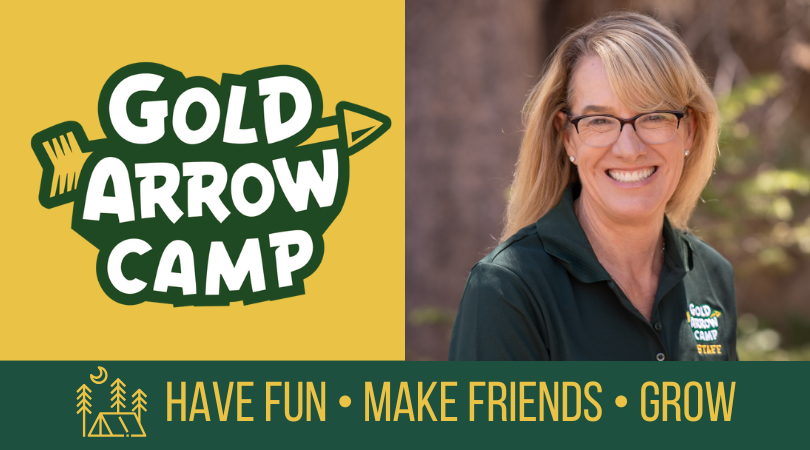
Thank you for being part of the Gold Arrow Camp community this year! In this week’s episode, Sunshine wraps up the 2025 GAC Podcast season and gives an overview of what we covered in this season’s interviews.
2025 Podcast Directory
Episode 75: Creating a Happier World with Airborne
Episode 76: Creating a Happier World with Chelster
Episode 77: Creating a Happier World with Bagel
Episode 78: Creating a Happier World with Speed
Episode 79: Creating a Happier World: The GAC Philosophy
Episode 80: The Magic of Camp (Happy Campers Book Excerpt)
Episode 81: Creating a Happier World with Evergreen
Episode 82: Creating a Happier World with Glitter
Episode 83: Creating a Happier World with Woody
Episode 86: Thrivers with Dr. Michele Borba
Episode 87: Experienced Campers Talk about Camp
Episode 88: Razz Talks about Camp
Episode 90: The GAC Experience with Punkie
Episode 91: Getting Outside with Boulder
Episode 92: The Positive Impact of Camp with Echo
Episode 93: Growing at GAC with Vision
Episode 94: Making the World a Better Place with the Friedman Sisters
Episode 95: Junior Counselors on Unplugging to Connect
Episode 96: Magoo Shares About Community and Confidence
Episode 97: Lyric on Growing Up at GAC
Episode 98: Zippy on Growing Independence
Episode 99: Pua on Overcoming Discomfort
Episode 100: Barrow on Juggling for Well-Being
Episode 101: Sneaks on Finding His Confidence and Helping Campers Find Theirs
Podcast: Play in new window | Download
Subscribe: Spotify | Email | RSS
Episode 101: Sneaks on Finding His Confidence and Helping Campers Find Theirs
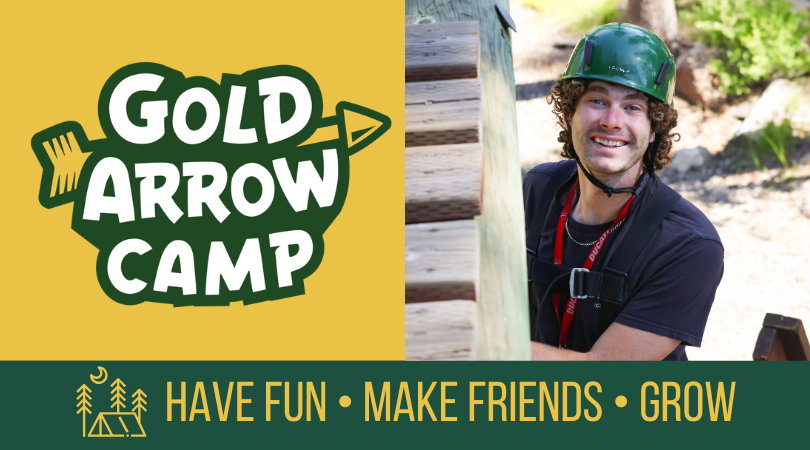
In this episode of the podcast, Brian “Sneaks” Adler talks about growing up at GAC as a camper and counselor. Sneaks talks about how his time at camp helped him figure out who he was, gain his confidence, learn how to be emotionally vulnerable and authentic, develop his leadership skill, and figure out how to thrive as a human. His summers at camp helped Sneaks figure out what he liked and what gave him purpose and fulfillment. Now he loves helping his campers and Junior Counselors grow in the same ways he’s grown at camp.
Related
Episode 95: Junior Counselors on Unplugging to Connect
Podcast: Play in new window | Download
Subscribe: Spotify | Email | RSS
Episode 100: Barrow on Juggling for Well-Being
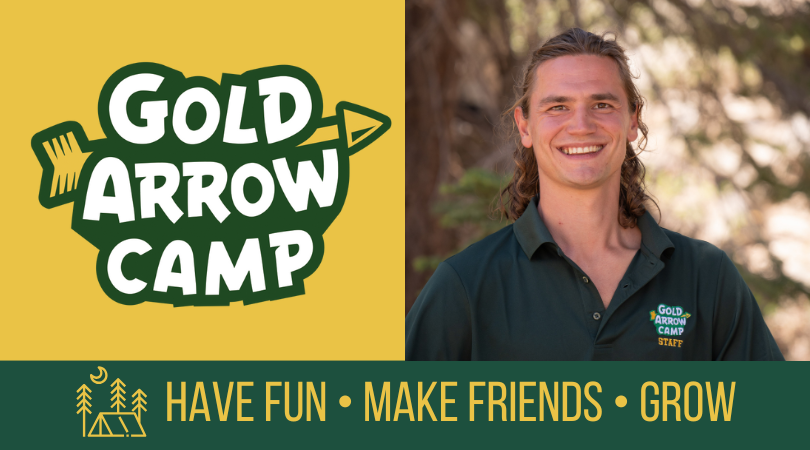
Head Counselor and GAC’s very own Circus Skills Coach tells his GAC story and about the passion for circus skills that he’s shared with our 2024 and 2025 campers and staff. Barrow’s high energy, positivity, and his love of juggling and circus skills have made a huge impact on our community, and we’re so grateful he’s part of our community. Many campers have headed home with their own diablos, practicing new skills they learned from Barrow. Each 2025 Appreciation Campfire featured “Cirque de GAC,” a performance of campers who’ve practiced new circus skills they learned from Barrow. Talk about trying something new!
We talk about some of the many positive benefits of juggling, including reduced stress and anxiety and improved perseverance and confidence.
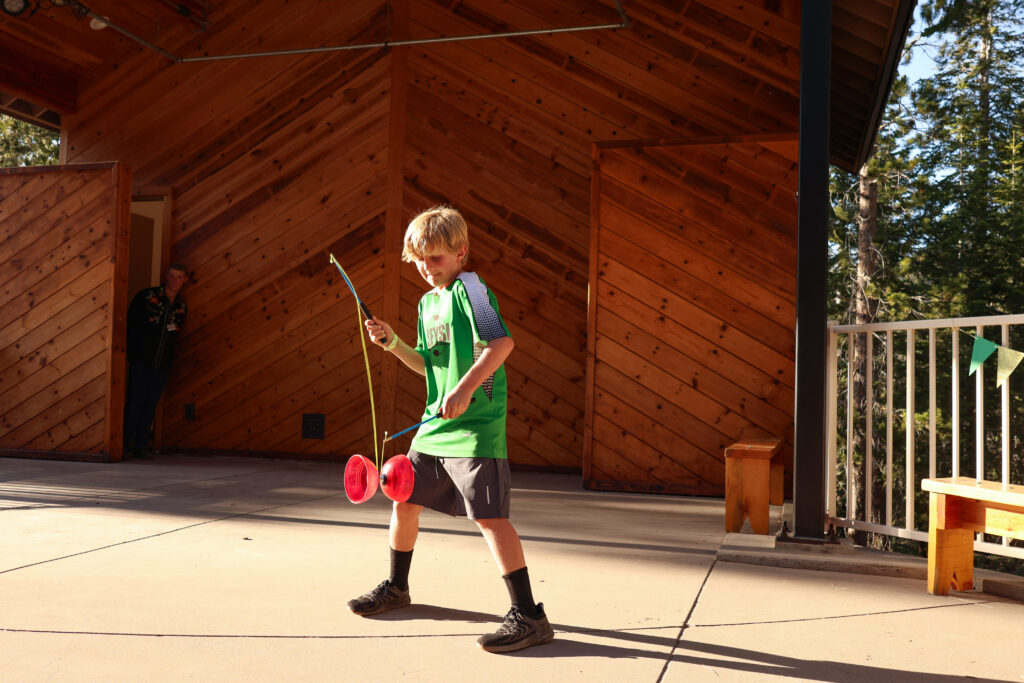
According to Google:
Diabolo juggling provides a wide array of benefits, from enhancing hand-eye coordination and concentration to boosting confidence and promoting social interaction. The practice can be mentally engaging, physically challenging, and a source of personal expression.
- Improves focus and concentration: Diabolo requires intense and continuous focus to keep the prop spinning and balanced. This is a form of mindfulness that can help with concentration in other areas of life.
- Sharpens reflexes and coordination: To maintain the diabolo’s spin and execute tricks, your eyes must track the diabolo while your hands manipulate the sticks and string. This process improves hand-eye coordination and quickens reflexes.
- Boosts brain health: Learning a complex bilateral motor skill like juggling encourages neuroplasticity, which is the brain’s ability to form new neural connections. This can improve brain health and function throughout a person’s life.
- Increases perseverance: Mastering a new trick is a process of trial and error that teaches patience and persistence. Each failure offers a chance to refine your technique, and the eventual success provides a rewarding sense of accomplishment.
- Reduces stress: The rhythmic and meditative nature of diabolo can provide a healthy distraction from daily stress and anxiety.
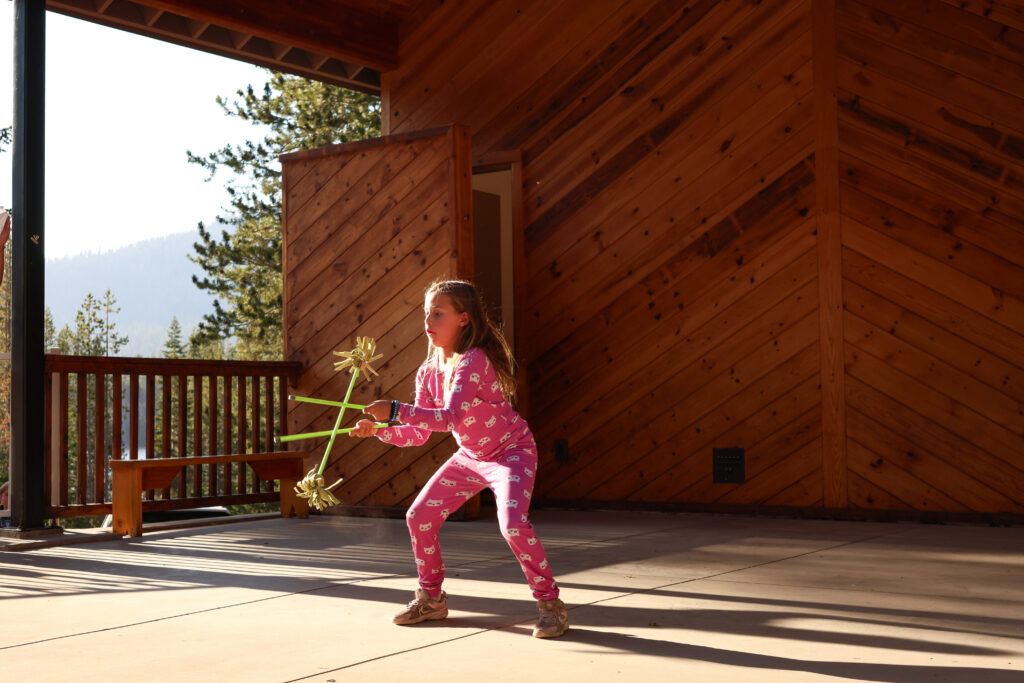
- Develops fine and gross motor skills: The delicate, precise movements of the sticks train fine motor skills, while the larger motions involved in tossing and catching the diabolo work gross motor skills.
- Offers a low-impact workout: Diabolo is a physical activity that gets you up and moving, which is healthier than remaining sedentary. Higher-level tricks involving multiple diabolos or acrobatics provide a more athletic challenge.
- Enhances physical expression: As you become more proficient, you can develop your own style and create artistic routines. The diabolo becomes a medium for physical and emotional expression, akin to a form of visual music.
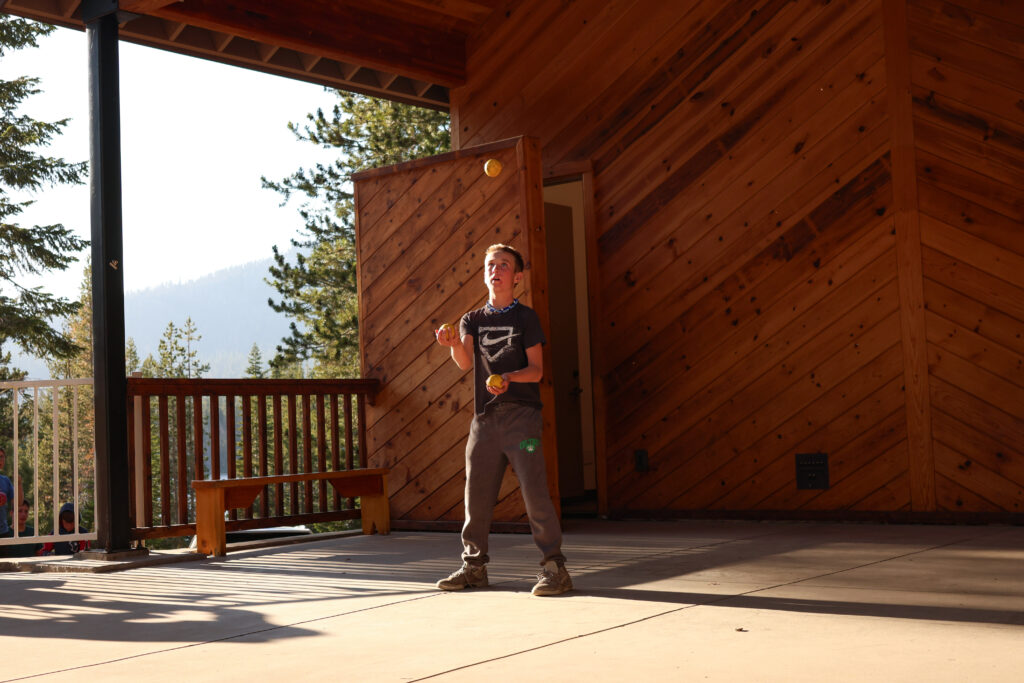
- Builds confidence and self-esteem: Every new trick you master gives you a tangible sense of achievement, which builds confidence and a positive self-image. This reinforces that you are capable of learning and growing.
- Fosters a sense of community: The diabolo community is largely non-competitive and supportive. Sharing knowledge, practicing with friends, and attending juggling clubs or conventions can be a great way to make new connections and bond with others.
- Inspires creativity: From inventing a new trick to choreographing a performance, diabolo encourages creative exploration. Its open-ended nature means there is no limit to what you can learn and create.
Resources/Related
5 Surprising Benefits of Learning to Juggle and Why it Might Improve Your State of Mind
Beyond the Balls: Unlocking the Surprising Benefits of Juggling
Juggling: A Fun Way to Boost Focus and Beat Anxiety
Podcast: Play in new window | Download
Subscribe: Spotify | Email | RSS
Episode 99: Pua on Overcoming Discomfort
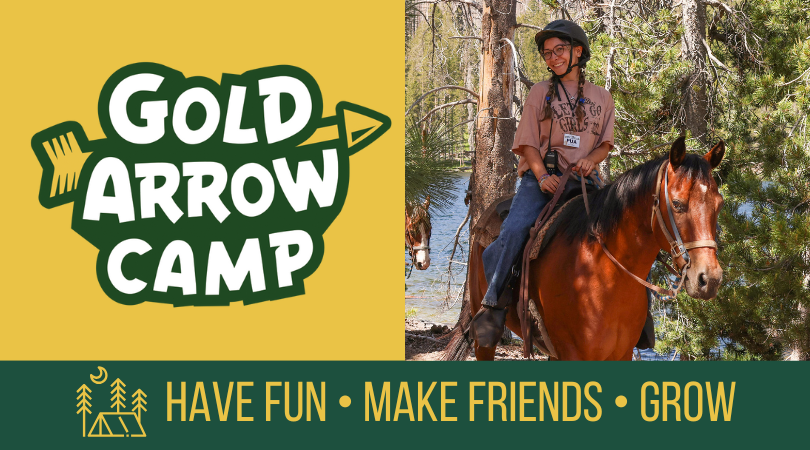
Second year staff member, Natalia “Pua” Elias Rodriguez, talks about coming to Gold Arrow Camp from Mexico, not knowing anyone else who worked here. Pua had a rough start and talks about her adjustment and the fun, friends, and growth she’s experienced at GAC. Pua has worked as a horseback riding activity counselor for the past two summers.
Podcast: Play in new window | Download
Subscribe: Spotify | Email | RSS
Episode 98: Zippy on Growing Independence

This summer, Renee “Zippy” Say celebrated her twentieth summer at GAC. Zippy attended as a camper and was a staff member in the early 2000s. Now she’s returned as a parent of her three boys and as a Shaver Host for two weeks each summer. In this episode she talks about her experiences as a camper and staff and the experiences her three boys are now having as campers. She talks a lot about the independence she developed in her camper and staff year and that she’s now seeing her boys develop because of their time at camp.
Resources/Related
Want An Independent, Self-Confident Kid? Camp Can Help!
Episode 95: Junior Counselors on Unplugging to Connect
Sunshine Parenting Episode 100: Teens’ Advice for Raising Responsible, Independent Kids
Podcast: Play in new window | Download
Subscribe: Spotify | Email | RSS
Episode 97: Lyric on Growing Up at GAC
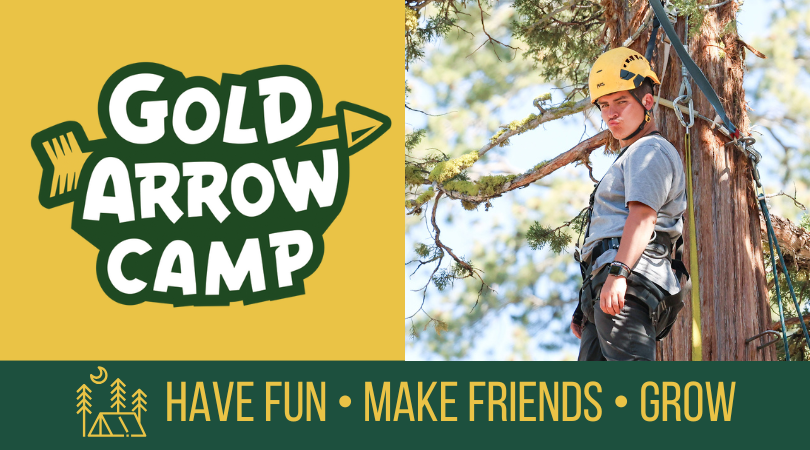
Lucas “Lyric” Orman started as a 9-year-old camper in 2007. He spent eight summers as a camper and he’s currently in his seventh year on staff. Overall, he’s spent 15 summers at GAC. In this episode, Lyric talks about growing up at GAC and how his time at camp has impacted him and his life.
Podcast: Play in new window | Download
Subscribe: Spotify | Email | RSS
Episode 96: Magoo Shares About Community and Confidence
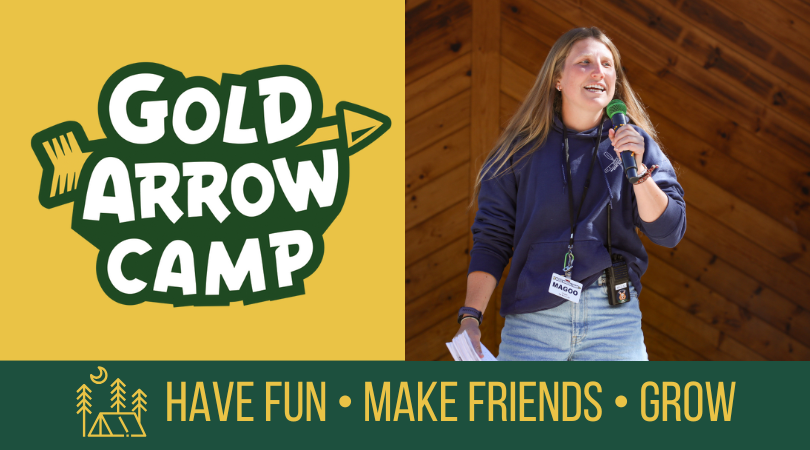
Madie “Magoo” Hotaling spent three summers as a camper at GAC and 2025 marked her fourth summer on staff. Magoo is a second generation GAC camper, following in the footsteps of her dad, George “Ghostrider” Hotaling. Magoo tells her GAC story and talks about how her time at camp has helped her build confidence and the community and friendships that keep drawing her back to camp.
Podcast: Play in new window | Download
Subscribe: Spotify | Email | RSS
Episode 95: Junior Counselors on Unplugging to Connect
Junior Counselors (Sessions 1 & 2, 2025) talk about their experience at GAC, being off screens for a month, and the values and practices they’re taking home with them.
Podcast: Play in new window | Download
Subscribe: Spotify | Email | RSS
Episode 94: Making the World a Better Place with the Friedman Sisters

We love it when siblings enjoy Gold Arrow Camp together. Meet sisters Brooke “Waves” and Jojo “Mojo” Friedman. Waves, who is in her 10th year at GAC, is an Activity Counselor working primarily on the waterfront this summer. Mojo, in her 9th year, was a Junior Counselor this summer.
In addition to their shared love of camp, the Friedman sisters are also making a remarkably positive impact in the world through the non-profit they founded during the pandemic, She Styles. In this interview, hosted by Bravo, Waves and Mojo share their stories!
About She Styles

This LA teen nonprofit holds free clothing pop-ups for low-income, homeless girls
Podcast: Play in new window | Download
Subscribe: Spotify | Email | RSS
Episode 93: Growing at GAC with Vision

Join Sunshine’s conversation with Luke “Vision” Beshoff, the Rock Climbing and Ropes Course Program Head this summer. Vision started as a camper at GAC in 2012 and has now been on staff for four summers. Vision is incredibly positive and enthusiastic about camp and his experiences here. He describes in detail the activities that fall under the “Rocks and Ropes” category here at camp, and how each of them offers amazing opportunities for campers and staff to get outside their comfort zones and grow! Vision also shares how he’s started appreciating different aspects of camp as he’s gotten older.
Related
Podcast: Play in new window | Download
